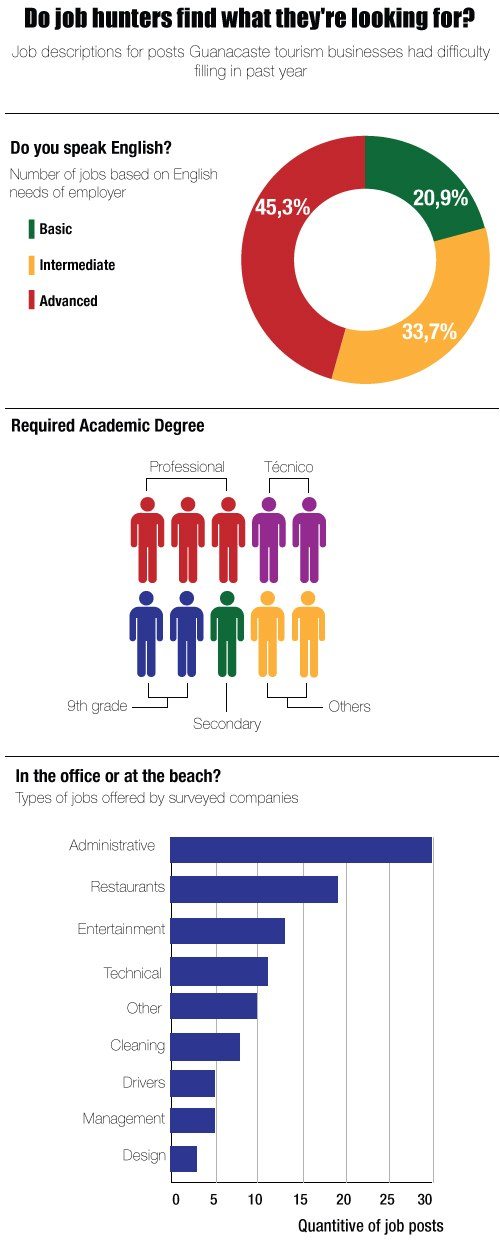
Tourism businesses looking to fill job openings with local talent from Guanacaste hit a wall when it comes to the availability of bilingual personnel, candidates with university degrees and customer service specialists.
A survey by Horizonte Positivo of 91 tourism businesses in the province associated with the Guanacaste Tourism Chamber, or Caturga, found that more than half (49) had serious problems in the past year filling posts in the region.
Although the survey is specific to one industry, it reveals some general indications on how to combat unemployment in the region, which affects 9 percent of Guanacaste homes.
Teaching young students English and helping them reach university is crucial, noted the report, which was prepared by Horizonte Positivo for a Vice President’s Office program called Combatting Poverty With Jobs in Guanacaste, based on survey data.
“We found a population of young people who graduated with degrees in tourism and business administration, but they don’t speak English. In Guanacaste, the top visitor is North American, so this is totally essential,” Caturga Executive President Priscila Solano said.
However, it’s not just an academic issue, but also one of discipline and commitment by Guanacaste’s young people, Solano said.
“There are English for tourism classes at INA (the National Training Institute) in which 40 students start the class, and only five finish. People still aren’t entirely convinced of the importance of having a second language, so employers look for workers in other parts of the country,” she said.
Among the positions employers said they had trouble filling are administration jobs (receptionists, accountants and sales reps) and restaurant services (cooks, chefs and servers).

Companies also look for personal traits, such as customer service skills, leadership, assertive communication, analytic ability, ethics and commitment, among others.
“The issue of customer service is a difficult one, and there are millions of (free) classes. The issue of assertive communication, of listening, … that kind of skill isn’t learned in high schools and universities,” Solano said.
Graduating high school and having good English not only helps change unemployment numbers, but they also affect poverty indexes, which are dynamic and change as people come and go from the job market. To move beyond that, there are still some goals remaining.
The dropout rate is one of them. According to statistics analyzed by The Voice of Guanacaste and provided by the Education Ministry, for every 10 students who enrolled in seventh grade in the province, only six made it to the 11th grade, according to figures from the past year.
“Managing to get a greater percentage (of students) to finish high school is the best preventive policy against poverty in the future, and it should be a priority for institutions,” the report stated.







Comments